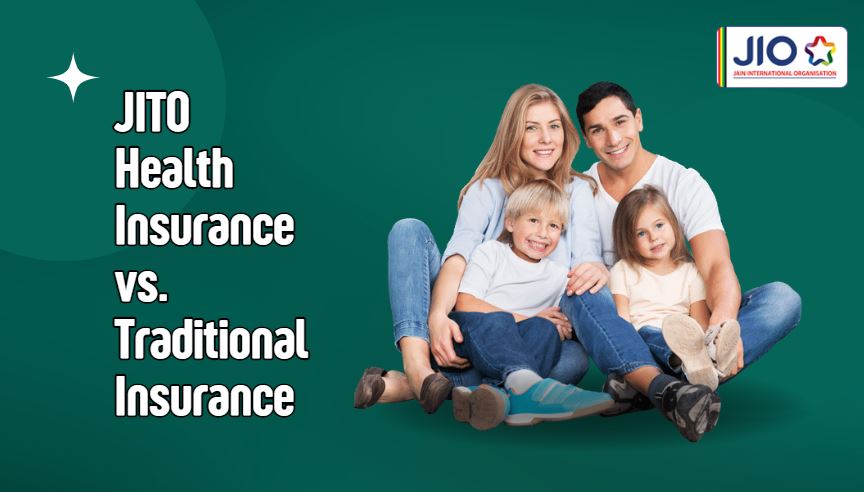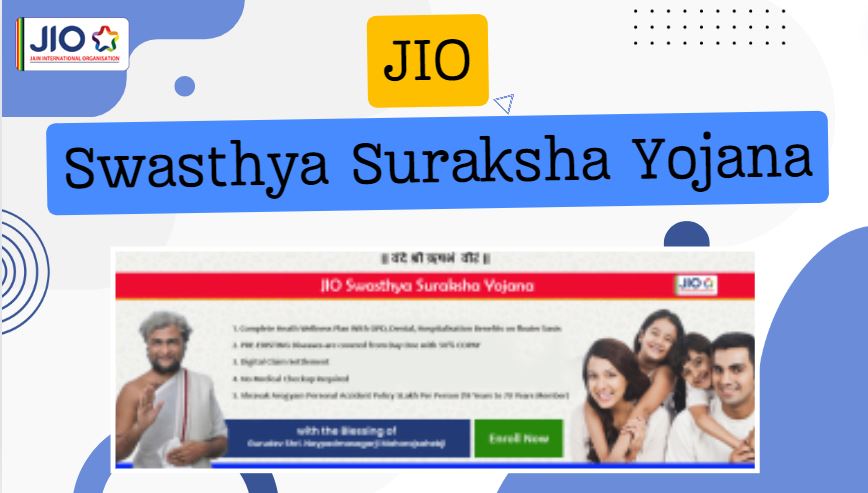
Are you curious about JITO health insurance? While there isn’t a conventional JITO health insurance scheme, JIO, the Jain International Organisation, offers unique healthcare programs.
Let’s delve into the details to uncover what these programs entail and how they can benefit you.
Traditional health insurance typically involves paying premiums to insurance companies in exchange for financial coverage during medical emergencies.
However, JIO’s healthcare initiatives, namely the JIO Swasthya Suraksha Yojana and Shraman Arogyam Card, operate differently.
Features and differences from traditional insurance plans
JIO Swasthya Suraksha Yojana emphasizes outpatient department (OPD) expenses and provides discounts on consultations with doctors and prescribed medications.
On the other hand, the Shraman Arogyam Card is tailored for Jain community members, offering cashless hospitalization benefits at network hospitals.
While these JIO programs offer valuable healthcare benefits, it’s essential to grasp that they don’t involve the same financial risk-sharing and comprehensive coverage as traditional health insurance plans.
Let’s dive deeper into these distinctions to help you make informed decisions regarding your healthcare needs.
You May Like to Read: How to save on Home Insurance?
JIO Swasthya Suraksha Yojana:

The JIO Swasthya Suraksha Yojana is a subscription-based healthcare program aimed at providing affordable healthcare services to its members. Here are some key features:
- Subscription-Based Program: Individuals can subscribe to the program by paying a nominal fee, which grants them access to discounted healthcare services.
- Coverage of OPD Expenses: The program primarily covers Out-Patient Department (OPD) expenses. This includes consultations with doctors and the cost of prescribed medicines. Members can avail themselves of these services at a discounted rate, typically around 25% off the regular charges.
- Affordable Healthcare Access: By offering discounts on essential healthcare services, the program aims to make healthcare more accessible and affordable for individuals, particularly those who may face financial constraints.
- Focus on Preventive Care: Providing discounted access to OPD services encourages members to seek medical advice and treatment at an early stage, promoting preventive healthcare practices.
- Network of Healthcare Providers: The program likely partners with a network of healthcare providers, including doctors, clinics, and pharmacies, to offer discounted services to its members.
You May Like to Read: Best E&O Insurance for Loan Signing Agents
Shraman Arogyam Card:

The Shraman Arogyam Card is a healthcare program specifically designed for members of the Jain community, often referred to as Bhagwants. Here’s what you need to know about this program:
- Exclusive Benefits for Jain Community: The Shraman Arogyam Card is tailored to cater to the healthcare needs of Jain community members, acknowledging their specific cultural and dietary preferences.
- Cashless Hospitalization Benefits: One of the key features of the program is its provision of cashless hospitalization benefits. This means that members can undergo medical treatment at designated hospitals without having to pay upfront. Instead, the expenses are directly settled between the hospital and the program administrators.
- Coverage of Allopathic and Ayurvedic Treatment: The program covers treatment for various diseases through both Allopathic (modern medicine) and Ayurvedic approaches. This holistic approach to healthcare reflects the diverse healthcare preferences within the Jain community.
- Network of Hospitals: Similar to other health insurance programs, the Shraman Arogyam Card likely operates through a network of hospitals that have partnered with the program. Members can access cashless treatment facilities at these network hospitals.
- Promotion of Wellness: By providing access to both Allopathic and Ayurvedic treatments, the program promotes a holistic approach to wellness within the Jain community, accommodating diverse healthcare needs and preferences.
You May Like to Read: Why you should buy Life Insurance?
Bridging the Gap: JITO Programs vs. Traditional Insurance
While JITO programs offer valuable healthcare benefits, it’s crucial to acknowledge the differences between them and traditional insurance plans. Unlike traditional insurance, JITO programs do not involve extensive financial risk-sharing or provide comprehensive coverage. However, they do offer unique advantages tailored to the specific needs of their members.
| Aspect | JITO Programs | Traditional Insurance Plans |
|---|---|---|
| Tailored Benefits | Customized to specific community needs | Standardized coverage for broader population |
| Discounted Healthcare Services | Offers discounted rates on healthcare services | Premiums may be higher but cover more services |
| Community Support | Fosters community solidarity and support | Risk-sharing across a broader population |
| Holistic Approach to Wellness | May include alternative medicine options | Generally focuses on modern medical treatments |
| Financial Risk-Sharing | Limited or no risk-sharing among members | Spreads risk across a large pool of policyholders |
| Comprehensive Coverage | Coverage may be limited to specific services | Covers a wide range of medical services |
| Regulatory Compliance | Less regulated, tailored to community needs | Subject to strict industry regulations |
| Premium Determination | Premiums may be lower due to discounts | Actuarially determined based on risk factors |
Conclusion
In conclusion, while there may not be a conventional JITO health insurance scheme, JIO offers innovative healthcare programs designed to meet the needs of its members. By understanding the intricacies of these programs and comparing them with traditional insurance options, you can take control of your healthcare future and embark on a path towards greater well-being.
